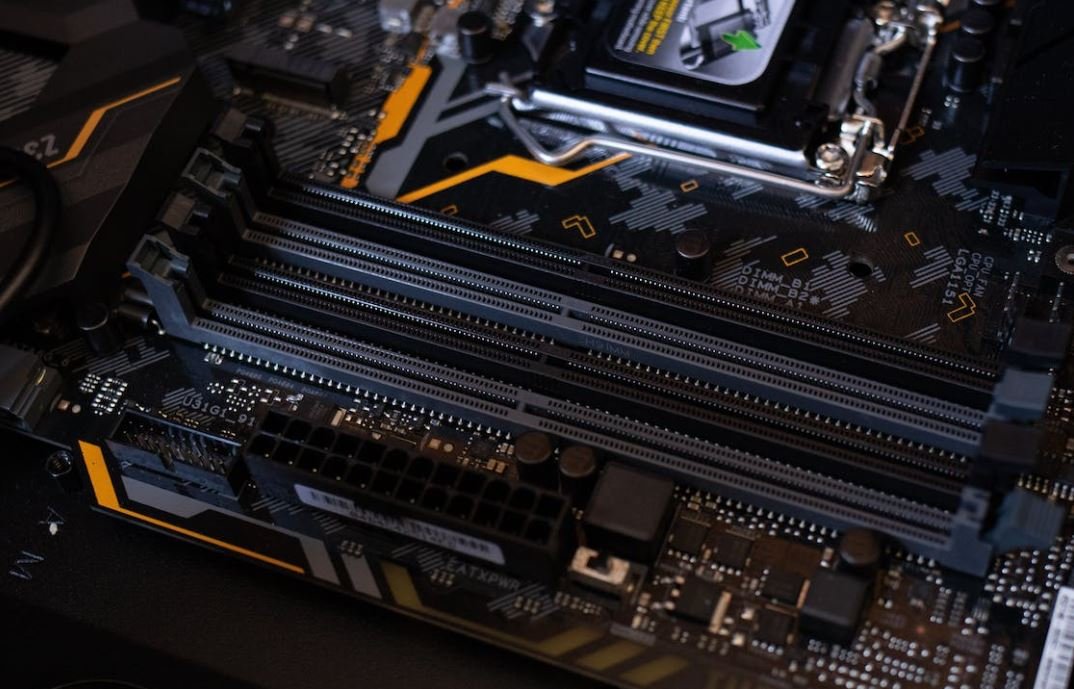AI: Good or Bad for Society
Artificial Intelligence (AI) is an ever-evolving field that continues to shape our society. While it offers exciting possibilities, there are also concerns about its impact on various aspects of life. It is important to understand the potential benefits and challenges associated with AI to make informed decisions and regulations. This article explores the implications of AI on society and presents a balanced perspective on its consequences.
Key Takeaways
- AI has the potential to improve efficiencies, enhance automation, and revolutionize various industries.
- Concerns surrounding AI include job displacement, ethical considerations, and potential bias in decision-making.
- A balanced approach is needed to harness the benefits of AI while addressing its challenges.
Benefits of AI
AI offers numerous benefits to society. One primary advantage is improved efficiency in tasks that typically require significant human effort. With AI algorithms and machine learning, computers can process large amounts of data and perform complex calculations at a speed and accuracy unmatched by humans. This allows for increased productivity and breakthroughs in fields such as medicine, scientific research, and data analysis.
AI enables faster data analysis and complex problem-solving, driving innovation in various industries.
Challenges and Ethical Considerations
While AI brings advancements, it also poses challenges to society. The potential displacement of jobs due to automation is a common concern. AI-driven machines and systems have the potential to perform tasks traditionally done by humans, impacting employment opportunities across multiple sectors. Ethical considerations also arise as AI algorithms make decisions that affect human lives. Ensuring fairness, transparency, and the absence of bias in AI decision-making processes is crucial.
AI has the power to revolutionize society, but its implementation necessitates careful consideration of its ethical implications.
Data Privacy and Security
The widespread use of AI involves handling vast amounts of data. Privacy and security concerns arise as personal information is collected, stored, and processed. Safeguarding against breaches and unauthorized access becomes vital to protect individuals and maintain public trust. Striking a balance between utilizing data for AI advancements and respecting privacy rights is a critical challenge for society.
The responsible use of personal data is a crucial aspect of AI implementation.
Examples of AI Impact
| Industry | AI Application |
|---|---|
| Healthcare | AI-powered diagnostic tools to identify diseases |
| Transportation | Self-driving cars and intelligent traffic management systems |
| Finance | AI algorithms for fraud detection and personal finance management |
Regulating AI
To ensure the responsible and ethical development of AI, regulations must be considered. Governments and organizations need to establish frameworks that strike a balance between fostering innovation and protecting societal well-being. Collaborative efforts involving policymakers, experts, and industry leaders are essential for implementing effective regulations that address societal concerns without stifling progress.
Regulating AI requires a collaborative approach between stakeholders to navigate its dynamic and evolving nature.
The Future of AI
The future of AI holds immense potential for both positive and negative impacts. It is essential to continue exploring innovative uses of AI while addressing concerns and challenges. Embracing AI technologies responsibly, with a focus on ethical considerations and collaboration, can lead to a future where AI benefits society as a whole.
The ongoing exploration and responsible implementation of AI will shape the future of society.

Common Misconceptions
Misconception 1: AI is a threat to human jobs
- AI can actually complement human work by automating repetitive tasks and enabling humans to focus on more complex and creative work.
- AI can create new job opportunities in fields related to AI development, implementation, and maintenance.
- The World Economic Forum predicts that AI will create more jobs than it eliminates, but it will require the workforce to acquire new skills.
Misconception 2: AI will surpass human intelligence and take over the world
- AI systems are designed to perform specific tasks and are far from achieving general human-like intelligence.
- AI lacks consciousness, emotions, and the ability to think abstractly, making it unlikely to gain full control over society.
- AI is a tool developed by humans, and it operates based on the algorithms and data it is trained on, without its own agenda or desires.
Misconception 3: AI is biased and discriminatory
- AI systems can be susceptible to bias due to the data they are trained on, reflecting human prejudices.
- However, bias in AI can be minimized through careful dataset selection and algorithm design, promoting fairness and inclusivity.
- AI can also help in identifying and rectifying bias by highlighting patterns and enabling decision-makers to take appropriate actions.
Misconception 4: AI will lead to unemployment and economic inequality
- While AI may initially disrupt certain industries, historically, technological advancements have led to job creation and improved living standards.
- AI can contribute to economic growth by increasing productivity, efficiency, and innovation.
- Governments and organizations can implement policies that ensure a smooth transition, such as retraining programs for displaced workers.
Misconception 5: AI is reserved for tech-savvy organizations and individuals
- AI technologies have become more accessible and user-friendly, allowing individuals and organizations of various technical backgrounds to utilize them.
- Cloud-based AI services, open-source platforms, and AI application programming interfaces (APIs) enable easier adoption without the need for extensive technical expertise.
- Companies are working to democratize AI by creating user-friendly tools that empower non-experts to leverage AI in their work.

The Rise of Artificial Intelligence
As technology advances, we witness the rise of artificial intelligence (AI), which has started to permeate various aspects of society. While some applaud the potential benefits of AI, others express concerns about its impact on our lives. In this article, we explore ten different facets of AI and its impact on society, examining both its positive and negative implications.
The Role of AI in Healthcare
AI has brought remarkable advancements to the healthcare industry. It can assist in early disease detection, facilitate accurate diagnosis, and even improve patient monitoring. However, there are concerns about data privacy and the potential for AI to replace human medical professionals.
AI in Education: Revolutionizing Learning
The integration of AI in education opens up new possibilities for personalized learning experiences. Adaptive learning platforms and intelligent tutoring systems can tailor education to individual needs. However, there are concerns about the overreliance on technology and the potential for exacerbating inequalities in access to education.
The Impact of AI on Employment
AI has the potential to automate various job tasks, leading to significant changes in the job market. While some argue that AI will create new jobs, others worry that it will result in widespread unemployment and economic disparities.
AI’s Effect on the Environment
AI can aid in resource management, energy efficiency, and reducing carbon emissions. However, the production and disposal of AI technology may contribute to electronic waste, requiring responsible disposal practices and sustainable manufacturing.
The Dark Side of AI: Ethical Concerns
There are ethical considerations surrounding AI, including issues of bias and discrimination in decision-making systems. Ensuring fairness, transparency, and accountability in AI algorithms is crucial to prevent reinforcing societal inequalities.
The Role of AI in Transportation
AI is transforming the transportation industry with self-driving cars and intelligent traffic management systems. While it holds the promise of safer and more efficient transportation, concerns about cybersecurity, privacy, and the loss of jobs in the transportation sector need to be addressed.
AI’s Impact on Entertainment and Creativity
AI is entering creative fields, generating art, music, and even screenplays. While this opens up new possibilities, some argue that AI-generated content lacks the emotional depth and human touch that is crucial in creative industries.
AI’s Role in Personalized Marketing
AI enables marketers to analyze large amounts of data to deliver personalized experiences and targeted advertisements. However, the collection and use of personal data raise concerns about privacy and the potential manipulation of consumer behavior.
AI in National Security: Opportunities and Risks
AI has applications in national security, including surveillance, threat detection, and defense systems. However, concerns about the ethics of AI-powered warfare, privacy intrusion, and the potential for misuse exist.
While AI presents numerous opportunities for advancement and innovation in various sectors, caution is required to ensure its responsible and ethical integration into society. Striking the right balance could lead to a future in which AI benefits humanity as a whole.
Frequently Asked Questions
AI: Good or Bad for Society
What is AI?
AI stands for Artificial Intelligence, which refers to the simulation of human intelligence in machines that are designed to perform tasks that normally require human intelligence, such as visual perception, speech recognition, decision-making, and problem-solving.
How does AI benefit society?
AI has the potential to benefit society in numerous ways. It can automate tedious and repetitive tasks, allowing humans to focus on more creative and strategic endeavors. AI-powered systems can enhance productivity and efficiency across various industries, leading to economic growth. It can also contribute to advancements in healthcare, transportation, environmental protection, and improve the overall quality of life.
What are the concerns about AI?
There are several concerns surrounding AI. One major concern is the possibility of job displacement as automation becomes more prevalent. Ethical concerns arise regarding AI’s decision-making capabilities and potential biases in algorithms. Privacy and security issues also arise when AI collects and analyzes large amounts of personal data. Some fear that AI could pose a threat to humanity if not properly regulated.
Can AI be biased?
Yes, AI can be biased. Bias can occur if the training data used to develop AI systems is skewed or represents certain demographics more than others. If AI systems are not designed to account for these biases, they can perpetuate and even amplify unfairness and discrimination. It is crucial to develop AI that is unbiased and promotes fairness and inclusivity.
Can AI replace human jobs?
AI has the potential to automate certain tasks and jobs, which may lead to job displacement in some industries. However, AI also has the potential to create new jobs and transform existing ones. While AI may replace certain repetitive and predictable tasks, it often works in collaboration with humans, enhancing their capabilities and productivity.
What steps are being taken to address AI’s ethical concerns?
Researchers, policymakers, and organizations are actively working to address AI’s ethical concerns. They are developing frameworks and guidelines to ensure transparency, fairness, and accountability in AI systems. Efforts are being made to reduce biases in algorithms and make AI more interpretable and explainable. Organizations are also working on regulations to protect privacy, data security, and prevent the misuse of AI technology.
How can AI improve healthcare?
AI has the potential to revolutionize healthcare. It can help in diagnosing diseases more accurately and quickly, enabling earlier interventions and better outcomes for patients. AI-powered systems can analyze vast amounts of medical data, identify patterns, and assist in personalized treatment plans. AI can also contribute to drug discovery, robotic surgeries, and telemedicine, making healthcare more accessible and efficient.
What are the risks of AI if not properly regulated?
Without proper regulation, AI can pose risks such as privacy breaches, data manipulation, and control over sensitive systems falling into the wrong hands. There is also a concern about AI being used for malicious purposes, including cyberattacks and disinformation campaigns. Unregulated AI could exacerbate social inequalities and create ethical dilemmas in decision-making processes.
How can AI impact the environment?
AI can play a significant role in environmental protection and sustainability. It can optimize energy consumption, improve transportation systems to reduce emissions, and enhance resource allocation. AI can also aid in monitoring and predicting natural disasters, managing waste, and promoting eco-friendly practices in industries. Overall, AI has the potential to contribute to a greener and more sustainable future.
Is AI science fiction becoming reality?
Many AI advancements portrayed in science fiction are becoming a reality, although they might not be as advanced as depicted in movies. While we still have a long way to go before achieving the full potential of AI technology, significant progress has been made in various areas such as image recognition, natural language processing, and autonomous vehicles. The field of AI continues to evolve rapidly, bringing science fiction closer to reality.




